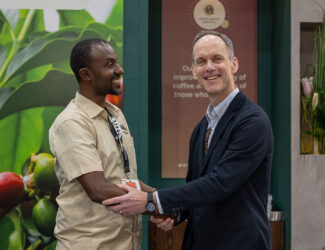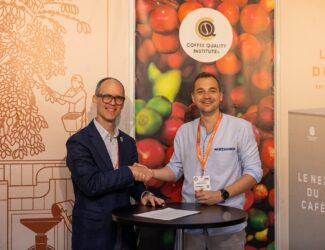
Director of the World Coffee Organization expects a shift in the market and emphasizes sustainability goals for 2024
Vanusia Nogueira, the Executive Director of the International Coffee Organization (ICO), anticipates a shift in the coffee market in the coming months. Nogueira recently discussed her insights on the industry’s outlook for 2024 with GCR.
Over the past year, the ICO has encountered significant challenges, presenting opportunities to strengthen collaborations with member countries’ national governments and the private sector. Their focus has been on fulfilling the objectives outlined in the Agreement, emphasizing improved statistical accuracy and the generation of new reports. Simultaneously, the ICO has actively pursued the goals outlined in the Coffee Public Private Task Force roadmap. A notable achievement was the successful hosting of the largest World Coffee Conference, attended by 18,000 participants from 80 countries. This conference played a crucial role in facilitating discussions on the Coffee Circular Economy and Regenerative Agriculture, underscoring the ICO’s commitment to sustainability and innovation in the coffee industry.
Looking ahead to the 2023/24 coffee year, the global market is expected to transition from a deficit to a modest surplus. This shift is attributed to a 5.8% increase in production, reaching 178.0 million bags, primarily influenced by biennial production in Brazil. The projected 3.0% world economic growth in 2024 is anticipated to contribute to a 2.2% rise in consumption, resulting in a surplus of 1.0 million bags for the period. The ICO expresses optimism that the new International Coffee Agreement will come into effect during the year, fostering private sector involvement and potentially positively impacting the market.
Addressing sustainability regulations, particularly meeting the deadlines of the EU Regulation on Deforestation-free products, will be a primary focus in the upcoming year. Clarifications are needed to ensure that all stakeholders can effectively fulfill their roles in compliance. Additionally, uncertainties surrounding the impact of climate change on the upcoming harvest remain a significant concern. Effectively addressing these issues will necessitate strategic planning and collaboration within the coffee industry.
Nogueira’s hope for 2024 is for the industry to operate with responsibility and unity, collectively working towards improving the lives of producers and actively contributing to addressing climate challenges.



